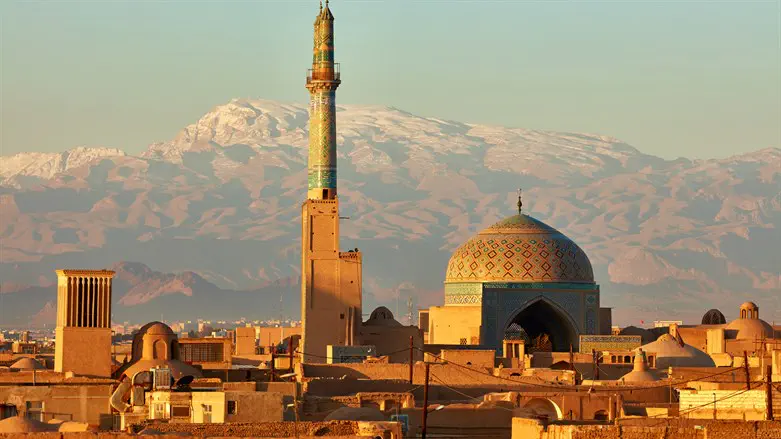
After a week that featured two deadly terrorist attacks and rocket fire in the north and the south of the country, "War is much closer than peace," assesses Gen. (res.) Yaakov Amidror, a former National Security Advisor and head of research in IDF Military Intelligence.
"America is no longer the same America it once was in terms of preparedness," Amidror told Radio 103FM. "And the Iranians have noticed this. The United States has much more complex issues to deal with than the Middle East right now, and the rest of the world sees Israel differently from the way it used to."
Amidror added that, "Iran is now more self-confident than it was and has succeeded in crafting more and more agreements with Arab countries. The world is changing, and the chances of things deteriorating still more are greater than ever. We must prepare for war, and it's possible that we'll reach the point where we have to attack Iran without America's aid.
"The Iranians are pushing hard to create unrest," he continued. "We haven't seen anything quite like this before. Things have reached boiling point, and even if we aren't yet seeing the volcano erupt, it doesn't mean that things aren't bubbling inside. The Iranians are fomenting trouble on a scale that we haven't seen in years and are doing their best to escalate things, including on the Temple Mount, which provides them with a pretext. Tomorrow is Iran's Jerusalem day and from their point of view, it will be the perfect time to escalate things on the Temple Mount," Amidror warned.
"Iran has been laying the groundwork for escalation. They have reached agreements with a long list of Arab and Islamic countries regarding the Temple Mount and the way to deal with the 'Zionist occupation,' and we're on a slippery slope right now. I think that the government made the right and responsible decision in closing off the Temple Mount to Jewish visitors for the end of Ramadan; at least this way, even if Arabs barricade themselves inside the mosques, the police won't have to break in. But tensions are extremely high," he stressed.
Asked whether the government erred in deciding not to respond to the bombing at the Megiddo Junction several weeks ago, Amidror replied that, "The issue of responses is always very important, as an effective response provides deterrence. If you don't respond, it certainly conveys weakness. But these are not normal times. The Iranians, Hezbollah, and the terrorist organizations are all following events in Israel very closely. They see what's happening as signs of weakness, even of disintegration and the end of the Zionist entity. That means that failing to respond in the current situation is far more significant. Israel must pursue independent policies in the security arena, and avoid being dragged into things," he added.
Amidror also attributed the recent rocket fire in the north to Iran. "This is all being directed by them. This is how they operate. They are trying to open a front across borders, from Lebanon to Syria, and they see it as a priority to gain access to Jordan as well. They're already in the Sinai Desert, and they have a great deal of influence on Hamas and Islamic Jihad in Gaza. Even in Yemen, the Houthis are starting to make threats against Israel, though one can hardly claim that Israel is threatening them there. But this is the modus operandi of Iran; this is how they increase the pressure on Israel - by turning the screws on several borders at once. And so we find ourselves in a very different place from where we were even just half a year ago.
"It's true that every so often there are assassinations in Iran, people taken out, weapons storehouses bombed and so forth," Amidror said. "But you have to distinguish between escalation and full-out war. War is something that's only going to happen against Hezbollah, because all this use of proxies to carry out attacks, even via Hamas, is nothing more than the occasional rocket fire we're already seeing, which can last for hours or perhaps days but won't develop into a full-scale protracted conflict. Hezbollah, on the other hand, is far better equipped - however, I wouldn't be so quick to predict war, because the situation in Lebanon right now is very delicate and Hezbollah has to tread carefully. Their economy is breaking down and parts of the country are experiencing famine."
In conclusion, Amidror stated that, "Hezbollah can undoubtedly inflict a great deal of pain on Israel, but it can't set the pace. Israel has some very tough assessments to make, but it's also clear in Lebanon that the moment Hezbollah itself attacks Israel, the response could easily be to wipe out Beirut and another few cities. On the other hand, continuing to act as they have been, using all kinds of Palestinian organizations with outdated Katyusha rockets, is also not so simple for us. It infringes on our sovereignty and could easily escalate to something much worse."
